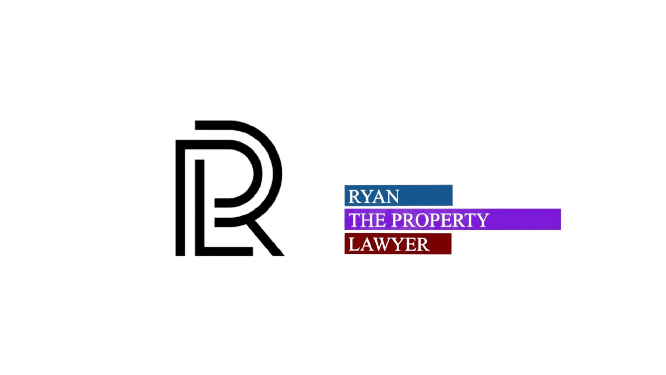Dealing with Contracts and Due Diligence in Commercial Real Estate Transactions
The buying, selling, leasing, or financing of assets meant for business use are all considered commercial real estate transactions. To guarantee that all parties are protected and that the sale is fair and transparent, these transactions frequently necessitate protracted legal negotiations. Both buyers and sellers must be aware of the legal difficulties that can arise during commercial real estate transactions. In this blog article, I will examine the main legal factors in contract negotiations and due diligence in commercial real estate purchases.
contract negotiations for commercial real estate deals
Contract negotiations are an essential part of commercial real estate deals. A well-written contract guarantees that each party’s rights and obligations are clearly stated, lowering the possibility of disagreements or misunderstandings. Here are some important legal points to take into account when negotiating contracts:
Defining the Parties and the Roles They Play
It is crucial to clearly identify the parties involved in the transaction. Buyers, sellers, brokers, lawyers, lenders, and any other pertinent parties are included in this. To prevent misunderstandings or ambiguity, the duties and obligations of each party should be expressly stated in the contract.
Purchase Cost and Conditions of Financing
In every deal involving commercial real estate, negotiating the purchase price and the terms of the financing are essential. The contract should specify the purchase price, payment schedule, and any financing-related stipulations. It might also contain clauses that allow the purchase price to be changed in response to things like property inspections or appraisals.
Time of Due Diligence and Contingencies
Before concluding the deal, the buyer has time to conduct extensive due diligence on the property. This includes carrying out inspections, looking over financial documents, and evaluating any legal or environmental concerns. The contract ought to detail the contingencies that would permit the buyer to end the agreement if any substantial difficulties were found, as well as the length of the due diligence period.
Assurances and Representations
The seller makes representations and warranties about the condition, legality, and other important information pertaining to the property. The expectations and duties of the parties involved are established with the aid of these statements. To guarantee that the buyer is safeguarded in the event that any misrepresentations are uncovered after the transaction, it is critical to agree on explicit and accurate representations and warranties.
The seller may make representations and guarantees on the state, legality, and other pertinent details of the property. These declarations aid in laying out the obligations and expectations of all parties. To guarantee that the buyer is safeguarded in the event that any misrepresentations are found after the transaction, it is imperative to agree on explicit and accurate representations and warranties.
The buyer’s thorough examination and analysis of the property and pertinent documentation is known as due diligence. It tries to identify any potential dangers, obligations, or problems connected to the property. Here are some significant legal matters to take into account when conducting due diligence:
Examination of title and ownership
To determine who owns the property and whether there are any liens, encumbrances, or legal restrictions, a complete title examination is essential. This investigation aids in finding any potential title issues that might have an impact on the buyer’s rights and potential usage of the property. For a clean transfer of ownership, all title concerns must be resolved before the transaction is closed.
Land use compliance and zoning
To guarantee that the property complies with local rules and regulations, it is crucial to comprehend the zoning constraints and land use restrictions. The purchaser should confirm that the property is being used for the purpose for which it was purchased. Before finalizing the acquisition, any zoning infractions or non-compliance problems should be addressed and fixed.
Environment-Related Issues
Environmental concerns can have a big impact on the law and the cost of commercial real estate deals. The property’s potential for pollution, the presence of hazardous chemicals, or other environmental risks can be determined by conducting environmental assessments, such as Phase I and Phase II environmental site evaluations. To reduce liability and adhere to environmental standards, it is crucial to address any environmental risks.
Review of contracts and leases
All agreements pertaining to the property should be carefully examined as part of the due diligence procedure. This comprises any legal paperwork pertaining to the property, such as service contracts, maintenance agreements, and leases with renters. Examining these documents will help you find any potential liabilities, commitments, or limits that might have an effect on the interests of the buyer.
tax and financial implications
Understanding the property’s financial situation and prospective profitability requires a close examination of its financial records. This entails going over tax returns, rent rolls, income statements, and other financial records. It is also crucial to assess any tax ramifications of the transaction, such as property taxes or tax incentives. To help you navigate these intricate financial factors, consider hiring a financial counselor or tax expert.
Conclusion
Understanding the many legal concerns involved and paying close attention to detail are essential for navigating legal challenges in commercial real estate transactions. The basis for a successful transaction is laid by contract negotiations that precisely specify the obligations and terms of each party. Making informed decisions is made possible by conducting thorough due diligence, which helps reveal any potential risks, liabilities, or concerns related to the property.
Both buyers and sellers can reduce risks and safeguard their interests by addressing legal issues upfront and maintaining transparency throughout the process. The assistance of knowledgeable real estate lawyers can be invaluable when navigating the intricate legal framework that surrounds commercial real estate transactions.
In order to secure a fair and effective purchase, it is essential to comprehend and solve legal concerns in commercial real estate transactions. Each phase, from contract negotiations through due diligence, is crucial to protecting the interests of all parties involved. Stakeholders can confidently manage these transactions and get the results they want by being diligent, proactive, and getting legal counsel.
Author Profile

Latest Blog
 Uncategorised22 December 2023What Constitutes a Legal Partnership in Ontario?
Uncategorised22 December 2023What Constitutes a Legal Partnership in Ontario? Uncategorised22 December 2023Characteristics of a Corporation in Ontario
Uncategorised22 December 2023Characteristics of a Corporation in Ontario Uncategorised22 December 2023Intentions Matter When Co-Owning Property
Uncategorised22 December 2023Intentions Matter When Co-Owning Property Uncategorised22 December 2023Consequences of Operating an Ontario Partnership
Uncategorised22 December 2023Consequences of Operating an Ontario Partnership




